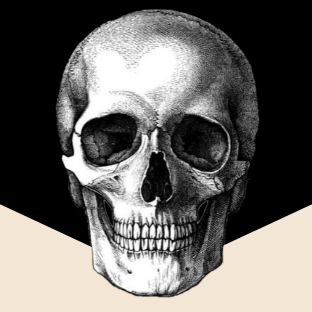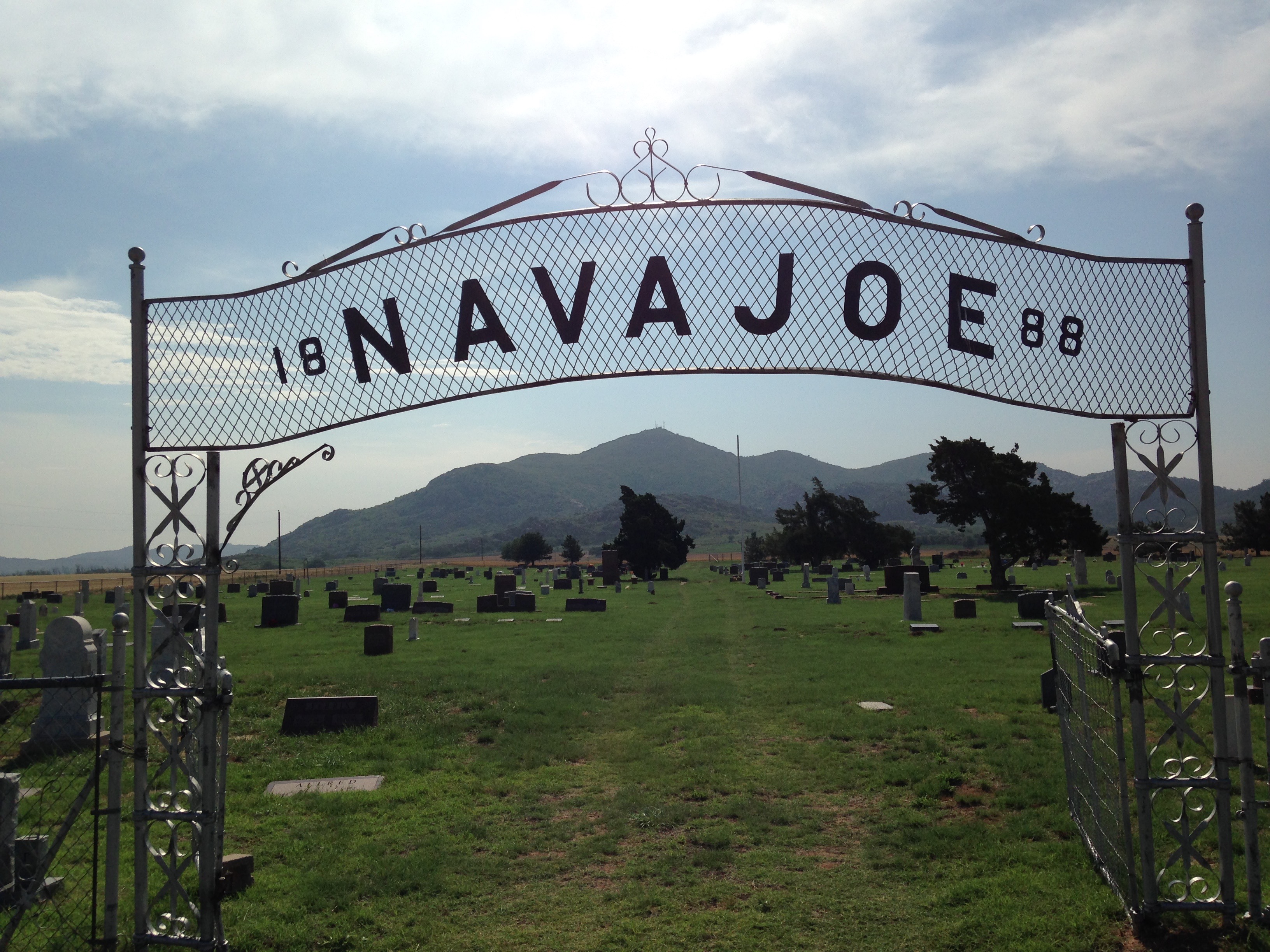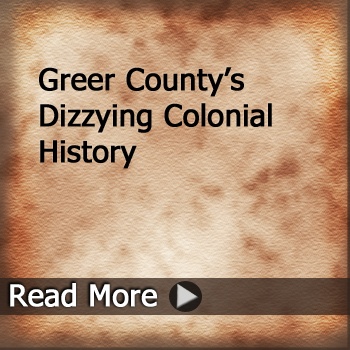by Ryan Clark
Navajoe Had a Vast Trade Territory
for Navajoe, Texas, of present-day Jackson County, Oklahoma
1.
Post-vice of chance severing what the U.S. Postal Service
added the “e” to, Navajoe as cord,
graves name for Navajoe what shall live on
among the vastness blushing wheat.
Texas allowed it time; it was Oklahoma that left the remains.
If a town, one of what readily forms us,
is a divot repaired, made to vanish into the dirt,
just the dead took, is the foundation of who
we are laid to rest, de-established, feral.
Eventually the light of home made forever dim
may insist on adding an “e” to the name of any
other version of city, as if “e” carries
what point was forged as our lost origin.
Whether west for Vernone, we feel Navajoe hover there,
right where we are, the weight huge though unmapped
washing signs into us as a center for enormous area.
It comes to steer us toward what we chase
or clothe familiar, trailing fumes of town behind,
the plains a stuck vision before us stretching.
2.
Settled lands do end;
our word for it allows for ghosts.
3.
Is it enough though entering the townsite
as a range of home motions, of lives ended
where a gate with a sign can hold them in.
You can see room undoored,
a Navajoe defeated and retired.
The word for old Navajoe was left
on the mountain we never knew.
We see enough of the wound
to see what shows a cord severed.
The mountain becoming Navajo
was a span of life as a defeated sigh.
Is this saving defeat as stain, as receipt,
the name already irrecoverable.
4.
In the rhizome of the year 1903,
the Frisco railroad is a branch
from home to what
can take us in next.
Four or five miles is enough distance
to end the flourish of our fifteen years,
meaning: end here our stable eyes;
our road away is enough of a life,
our moving on enough of a love
for all that memory carries.
Is it the end that severs,
or is it after, when out of the end
a map is superimposed over loss, a map we know
for the river and the shove of mountains,
yet there isn’t a view of us,
not there where I saw home.
On the Banks of the Frazier
for Frazer, Texas, later moved and renamed
as present-day Altus, Oklahoma
1. Buttermilk Station
First, a town is inches of area,
is a shared tone on the banks
of a river, a noise to lead us
together as foreigners to a trust
we cannot reach out for.
We tease out the where of it
in tiny favors, clear and faithful
like rain in dust.
Miles commune, grow dugouts
and become pulled into name,
washed up with cowboy thirst
asking Uncle John for a glass
of buttermilk.
Rose the town that could ask,
that offered us the room.
2. Frazer
Name it after the Frazier River,
the town a fork of the name
of a trapper, a face deleted,
the “i” some message shed
for salt flowing through where
traps dragged on the bank—
such a roof over what
they knew was made.
3. A Post Office Made It a Town
Is it the naming of a post office
that reserved where we gain teeth
and seize our home in our mouth,
where our mouth hovers over
our word for us as we cross out of here
after many years? Is it the mail sent
or is it the mail run home, folded into the arm?
Letters said Frazer, Texas, Frazer,
Oklahoma Territory, Frazier, Indian
Territory, and the name took their weight,
shot a post deep in the race of map,
extended wire.
4. Frazer Continued to Grow
Fresh is a mound that took of the country
a shape, signs boasting saloon where dirt
was a story yelled very thin. This is atomic
up front, a sheer town drawn in pencil
awaiting teeth to fill it, to raise it in wire
set to a charge of reason.
5. An Early Summer Flood Wreaked Havoc
The young June town floated away,
washed a tragic thing over plains.
Sloshed Bitter Creek and the Salt Fork
of Red River jointly, one vast inland sea
thrown into houses; sloshed the dirt rust
of all the dugouts filled with water. Rain
drew us as a river, as the name had said,
as if Frazer could only be water standing
over the tops of counters, as if the map
again failed to verify the true course
of the river, and by some corrective mark
the waters crashed through the home as a shore.
6. Residents Moved to Higher Ground
In collapse, stuck to people,
Frazer rebuilt on high ground,
said Altus to mean a town
not submerged, said tower
over us and stay where we are.
The end leads in, is followed
in new tones and words
for us to use.
7. A Country Cemetery Is All That Remains
The way a cemetery drifts, six years a town,
ever further a name out of site, a fraying rope
holding memory. A chain link fence scrawling
ends in broken segments holding what it can.
About the Author
Ryan Clark is an Old Greer County native who currently teaches creative writing at Waldorf University in Iowa. His poetry has most recently appeared in Heron Tree, Panoply, Otoliths, Split Lip Magazine, and Found Poetry Review, and his first book, How I Pitched the First Curve, is forthcoming from Lit Fest Press.



